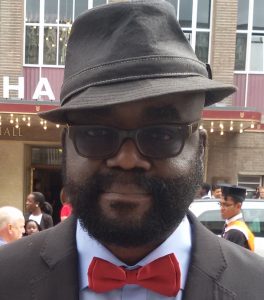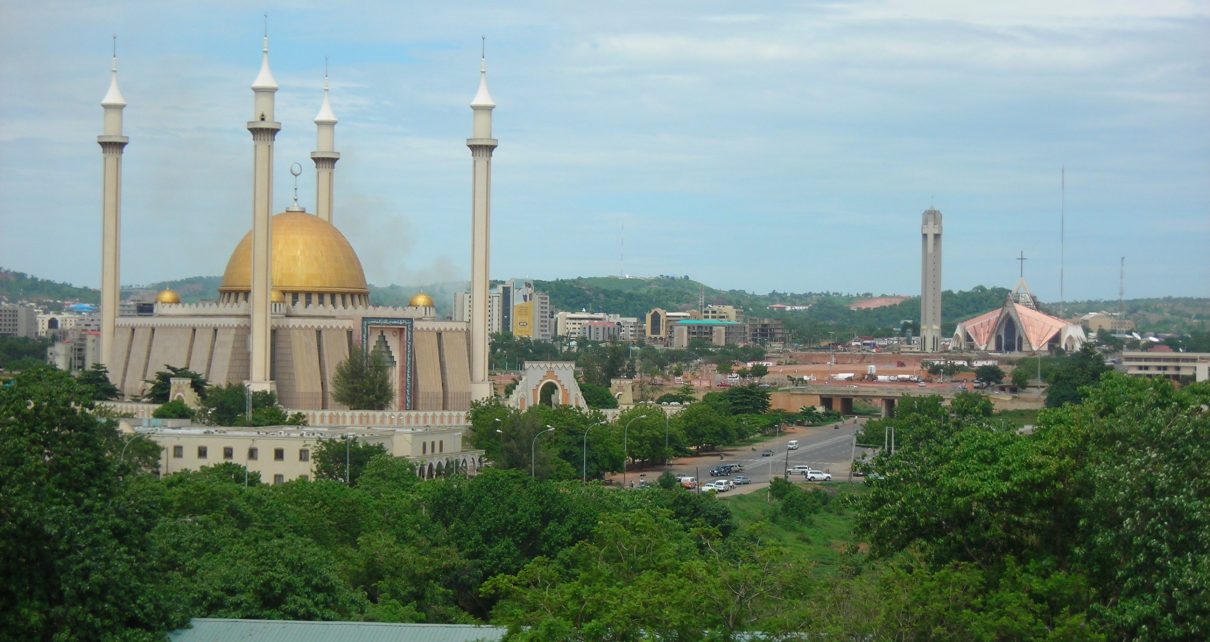
wole.olaoye@gmail.com
The first world is ruled by ideas, by knowledge. Africa is ruled by religion. Nigeria, the giant of the continent, is the biggest exponent of the African predilection. The majority of Africans are almost evenly divided between Christianity and Islam. Many of them combine the practice of their traditional belief with the practice of Abrahamic religions. So, although, officially, many people identify themselves as Christians or Muslims, they manage to adapt indigenous African religious concepts and belief systems to domesticate the foreign religion
In many societies, it is still not politically correct to identify oneself as an adherent of traditional religion because the indigenous belief system has been so misrepresented and demonised by colonialists who used religion to control the minds of their ‘subjects’.
Europeans used religion as a tool of domination. They still do. Both religion and commerce are eternally intertwined in their consciousness. Religion is a handmaiden of virile commerce. Religion, in this instance, is the oil that lubricates the engine of capitalism. God wants his creatures to prosper and the only way they can prosper is to follow the precepts laid down in the bible or the koran.
Religion has been so entrenched that many African Christians think they are Jews (I wish they knew what the average true-blood Jew thinks of them). Similarly, the African Muslim, especially the Nigerian variant, thinks he is an Arab by extension. Some don’t even have any native African name anymore. They have subsumed their cultural identity to the mores of the founder of the foreign faith.
The ruthlessness of American capitalism is honed by a Christian religious fervour second to none in all its opiate glory. Say what you will, it works for the Americans. They built a country that became bigger than their ‘mother’, Great Britain. They became the number one country in the world. Little Belgium came to Africa with the bible in one hand and the sword of elephantine greed on the other. While the Congolese acquired new French names, the Belgians carted away the mineral resources of the country. The bringer of the new religion became humongously prosperous while the recipients of the new faith became poorer and poorer.
Shall we then say that the God that prospered the Belgian is the same one that pauperised the Congolese? No! We should rather be interrogating the use to which each side put religion. Africa has made an industry out of religion — an industry that prospers only the acolytes around the altar of salvation.
See what the Emirati have made of their expanse of desert! The same Islam they profess is the same as that practiced by some of the most backward countries in Africa whose far-right brand of Islamic extremism is their call to fame. Some of the great mathematicians of yore were Arab. In addition to praying five times a day, they devoted their lives to knowledge, to research and development. By contrast, many Africans live for their religion, devoting more time to seeking the face of God than working for the development of their societies. But who is going to tell them that no matter how long a bicycle sleeps in a garage, it will never become a car!
Lawyer and political economist, Olu Fasan, answers the puzzle of why the same religion used by the first world to realise their capitalist aspirations becomes a millstone around the necks of Africans, stagnating them in poverty. Looking at the case of Nigeria, he says, “To be sure, Nigeria is a deeply religious country, but its religiosity is shallow; it does not conform with biblical principles. What is more, it does not inspire the spirit of capitalism needed to generate wealth and prosperity and tackle poverty. Indeed, Nigeria’s religiosity erodes, rather than helps, prosperity!”
If that sounds like a damning verdict, consider the facts:
“Nigeria’s religiosity lacks the moral fervour and drive to engender a viable capitalistic economy and therefore prosperity.
“Take the two elements of the spirit of capitalism: the accumulation of wealth and thrift. Nigeria is an oil-dependent mono-economy that has failed woefully to diversify. Once it discovered oil in the 1970s, it abandoned all other economic sectors, including agriculture. A capitalistic economy does not behave like that; it fires on all economic cylinders, not just one, to accumulate wealth.
What about thrift? Well, Nigeria is a profligate country; it hardly saves or invests but rather borrows and spends excessively and unproductively, with recurrent expenditure accounting for over 70 per cent of its annual budget.
“All the successful Asian countries financed investment out of savings. Nigeria could easily have built the infrastructure for a strong economy with all the money it made from oil. But it squandered its huge oil money. That is not the behaviour of a capitalistic economy. At the individual level, Nigerians indulge in conspicuous consumption. A few years ago, there was an event in Kenya. All the prominent Nigerians who attended the event went in their private jets to the amazement and amusement of Kenyan journalists. Weber would argue that such behaviour is inconsistent with the spirit of capitalism and the Protestant values.
“Then, what about work ethic? No country has ever developed without an efficient bureaucracy. The economic success of Singapore and China is partly associated with the quality of their civil service. But Nigeria has a broken and dysfunctional bureaucracy. For instance, the following are words used by Nigeria’s Office of the Head of Service of the Federation, in various press releases, to describe the country’s civil servants: “habitual late coming”, “truancy”, “lukewarm and shoddy attitude to the discharge of duties” and “corrupt practices”.
“Yet Nigeria is a deeply religious country, where everyone wears their religion on their face. But the work ethic of the people is not consistent with the “duty in calling” associated with religion and the spirit of capitalism.”
When Karl Max said religion was the opium of the masses, he could have been referring to Nigeria. In the run-up to 2023, Nigerian politicians have started using religion again. Rather than give account of their stewardship, they’re flinging religion into every discussion as if the constitution cares a hoot about what direction a president faces when he prays. We have so weaponised religion that we are now captives of the holy monster of our creation.
The world is not going to wait for us. In this same land, our forebears used to be kings, queens, men and women of noble character who had enough to satiate their needs. Had we simply ‘copied and pasted’ the received foreign religions of the colonialists who interrupted our development, we probably would have been materially better. But we enthroned the Abrahamic religions of Christianity and Islam in place of hard work, knowledge, diligence and good old honesty.
Religion is not the problem. The use to which religion is put is the issue.
Godless China is prospering while religious Nigeria, where every activity begins with a prayer, goes about with a begging bowl for loans and grants. Japan doesn’t lace every discussion with ‘God’, ‘Jesus’ or ‘Allah’, but it is one of the least corrupt nations on earth while our categorisation as a “fantastically corrupt” country is universally acknowledged.
Now, from the depressing to the ridiculous. De-branding Nigeria is gradually becoming a globally acceptable pastime. Or how else is one supposed to react to the improbable shipment of human penises from Nigeria to China.
A story titled, “Chinese authorities seize over 7,200 human penises on a cargo ship from Nigeria” has been making the rounds on social media. It states that Chinese customs officers made the world’s biggest seizure of human organs in history when a total of 7221 penises of African origin were found hidden in a refrigerated freight container. The organs were allegedly shipped from Lagos, Nigeria, but may have only transited through that country and could possibly originate from elsewhere in Africa.
That must be a cruel joke on our fake, poverty-romancing religiosity.
- Wole Olaoye is a public relations practitioner and a public affairs commentator and can be reached at wole.olaoye@gmail.com


